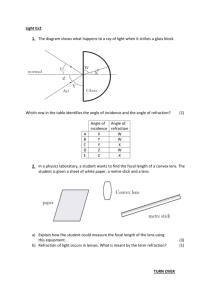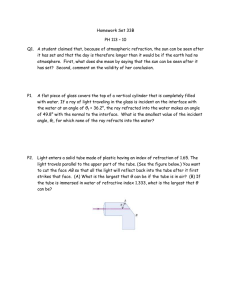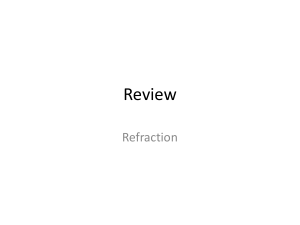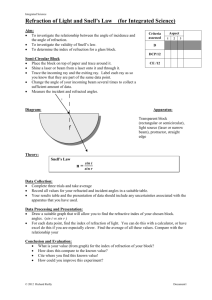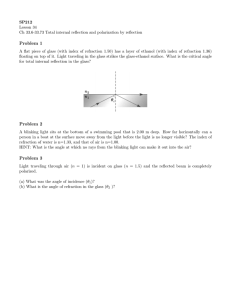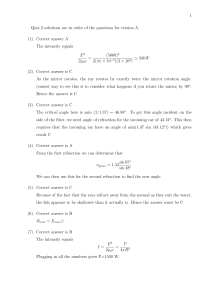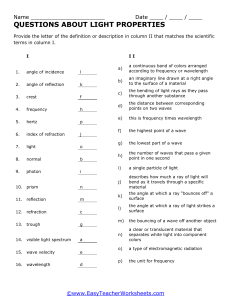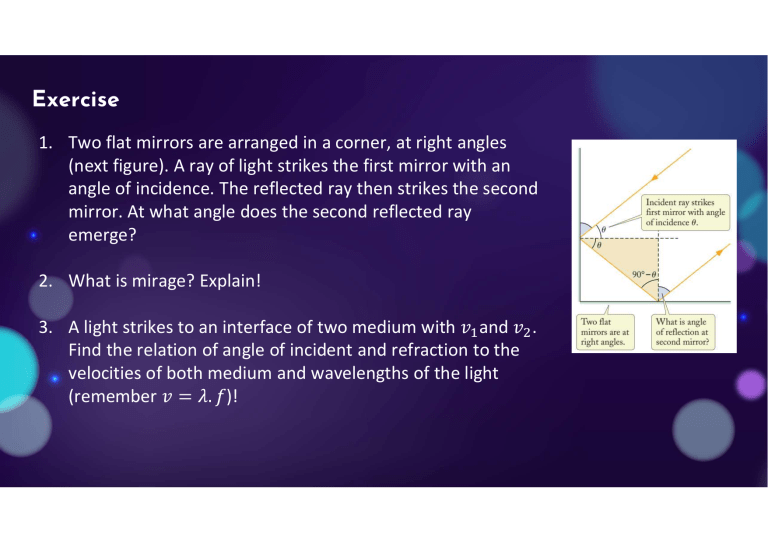
Exercise 1. Two flat mirrors are arranged in a corner, at right angles (next figure). A ray of light strikes the first mirror with an angle of incidence. The reflected ray then strikes the second mirror. At what angle does the second reflected ray emerge? 2. What is mirage? Explain! 3. A light strikes to an interface of two medium with and . Find the relation of angle of incident and refraction to the velocities of both medium and wavelengths of the light (remember )! 4. In next figure, material a is water and material b is glass with index of refraction 1.52. The incident ray makes an angle of 60° with the normal; find the directions of the reflected and refracted rays. 5. The wavelength of the red light from a helium-neon laser is 633 nm in air but 474 nm in the aqueous humor inside your eyeball. Calculate the index of refraction of the aqueous humor and the speed and frequency of the light in it. 6. A ray of light enters a thick plate of glass of index of refraction n = 1.52 at an angle of incidence of 45 (see next figure). a. What is the angle of refraction of the ray at the upper surface of the glass? b. When the ray reaches the lower surface of the glass, it is refracted again and it emerges into air. What is the angle at which it emerges? 7. A flint-glass prism is made in the shape of a 30°-60°-90° triangle, as shown in the diagram. Red and violet light are incident on the prism at right angles to its vertical side. Given that the index of refraction of flint glass is 1.66 for red light and 1.70 for violet light, find the angle each ray makes with the horizontal when it emerges from the prism.
